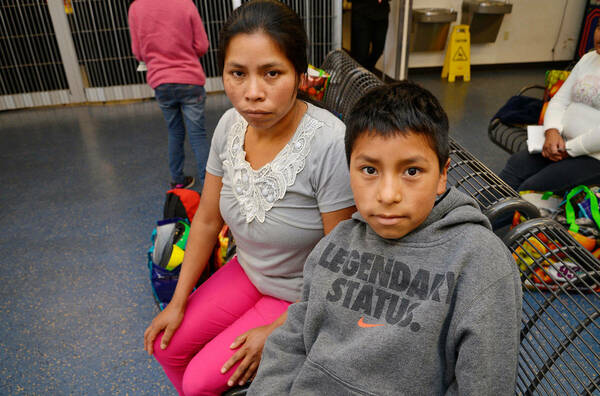Poverty is a big driver of global migration. People are moving farther and in larger numbers than at any other time in history. This brings serious ramifications, especially on the U.S.-Mexico border.
The Pulte Institute has a long record of bringing together cross-sector academics and researchers from Central America to study the root causes of migration and what can be done to mitigate it at the local level — and to support those forced to flee desperate circumstances.
Pulte Institute surveys, for example, found that a majority of Hondurans (55 percent) want to migrate within the next three years and that 72 percent of Honduran and Salvadoran middle schoolers would like to live in the U.S. in the future.
Hondurans cite high levels of gang and domestic violence, lack of quality jobs, political instability, and mistrust of public officials as reasons to leave their homeland. Pulte researchers have identified additional motives, including the impact of corruption and autocracy in previously democratic institutions.

The Institute’s Central America Research Alliance (CARA) harnesses data to identify patterns and inform programs and policies so Central American people do not face the heart-wrenching choice between risks at home and risks on the journey north.
Supported by a $2-million State Department grant, CARA Directors Tom Hare and Estela Rivero focus on the social and psychological well-being of youth planning to migrate. They work directly with Central American young people as part of the Gang Resistance Education and Training (G.R.E.A.T.) program.
Partnering with Isabel Quintanilla and other researchers at Universidad Francisco Gavidia, one of the top universities in Central America, CARA performed on-the-ground research with students, parents, and youth to evaluate the effectiveness of the G.R.E.A.T. program and make recommendations for future program implementation in the region.
“To help young people understand they have choices and to prepare them for an uncertain future, our study results were used to expand the G.R.E.A.T. program to focus on developing skills pertaining to problem-solving, teamwork, empathy, as well as learning to accept failure as a part of the growth process,” Rivero said. “The students explored new roles, responsibilities, and challenges for the future workforce and learned techniques for motivating themselves and others.”
CARA’s research has shown that the dread of having their futures denied pushes many Central Americans to seek opportunities elsewhere. Through their analysis, Hare and Rivero identify solutions for policymakers to implement that empower people.
“Nation-building activities that focus on job creation, microfinance and small business support, quality education, skills development, and access to basic services enable people to stay in their home countries,” Rivero says. “However, implementing change requires collaboration between governments, the private sector, and international partners.”
Rivero says that scapegoating people is not the answer to socioeconomic and political pressures posed by rising levels of migration. CARA brings data to encourage more evidence-based solutions.
At the Pulte Institute, CARA continues to work to identify common denominators of the problems individuals and communities face. Only with relevant, rigorous research — continuously refreshed and shared around the world — can policymakers in the U.S. and abroad make decisions in the best interests of their people and manage the situation on America’s southern border.